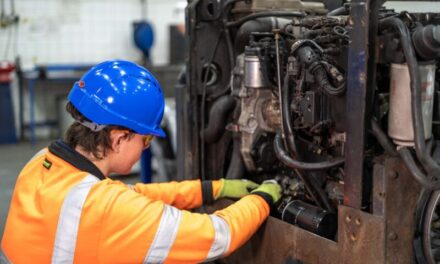With business and commercial premises on a path of gradual reopening after months of limited capacity due to the COVID-19 pandemic, Bureau Veritas is encouraging duty holders to focus on potential Legionella hotspots as part of its ‘return-to-work’ strategy.
The advice comes as the UK has emerged from lockdown, with the Government lifting all restrictions and urging a cautious and phased approach to an office return. Businesses that have been closed or had a limited capacity over the last 18 months may be at an increased risk of Legionella bacteria in its water systems, due to infrequent use and stagnation.
While recent figures from Public Health England (PHE) from January to October 2020, show an overall decrease in cases of Legionellosis compared to the previous three-year average1, there has been an uplift in non-travel related cases – such as community and healthcare settings. The significant decrease in abroad travel cases are, of course, explained by travel restrictions throughout 2020.
Identifying areas of Legionella risk in the workplace is now even more important than ever, says Bureau Veritas, as the long-term effects of COVID-19 on the lungs have the potential to increase susceptibility to Legionellosis infections. In addition, with a number of businesses stating they will likely never return to 100% capacity, duty holders must look at how to overcome the associated increased risk of Legionella and take steps to ensure compliance with the HSE’s Approved Code of Practice (ACOP) L8.
Aimee Moorshead, Technical Manager (Indoor Air and Water Quality) at Bureau Veritas, said: “With a large number of workplaces having closed or only partially-opened as a result of the Government’s coronavirus lockdown regulations, many water and cooling systems will have become stagnant over this period, increasing the risk of Legionella bacteria forming in these areas.
“For offices, one of the biggest risks will be in toilet facilities. Some duty holders may have been visiting their premises once or twice a week to flush toilets and turn on taps, thinking this is sufficient. However, compared to the level of use this area will have seen pre-COVID and the level of use they were designed for, this is unlikely to negate the risk of Legionella bacteria.”
Outbreaks and clusters of Legionella-related illness occur from exposure to the bacteria growing in purpose-built systems where water is maintained at a certain temperature, which is often high enough to encourage bacterial growth, such as cooling towers, evaporative condensers and hot and cold water systems.
Water systems which have been lying stagnant are at a greater risk of reaching the 20-45 degrees Celsius temperature in which Legionella bacteria thrives, thus placing an even greater importance on managing risk. This is especially pertinent at this time, with Legionella bacteria often at its highest between the months July and October, due to the warmer temperatures.
Aimee Moorshead continues: “The combination of both having stagnation and suitable temperatures increases the potential for legionella bacteria to grow.
“Many businesses have made it clear that they don’t intend to return to 100% capacity for the foreseeable future, as a new system of hybrid working has been established. As more firms adopt this approach going forward, there must be greater consideration for the increased risks of Legionella – as the building which has been designed for 100% capacity will be operating at a reduced number.
“As businesses begin a phased return to work, it is the responsibility of the duty holder to ensure the premises is safe. When it comes to assessing Legionella, a risk assessment may not simply be enough, and sampling could be required to ensure systems do not contain the harmful bacteria. By conducting a thorough programme of sampling, a business can validate the safety of the premises and then conduct a risk assessment in the confidence that it is accurate.
“In accordance with PHE guidance, a risk assessment must be reviewed when the use of the building changes – a change in capacity levels is certainly a significant change. Thus, firms must make this a priority amid reopening. The process of sampling and reviewing risk assessments may seem a formidable task, but third-party compliance experts like Bureau Veritas are on hand to offer their support and services.”
Bureau Veritas, a leading testing, inspection and certification authority, offers a suite of services to help firms assess and manage their Legionella risk and comply with HSE’s ACOP L8. This includes not only assisting with risk assessments and reviews, but additional support and advice on flushing frequencies, help with development or improvement of written schemes of control, and regular sampling to ensure ongoing control.



